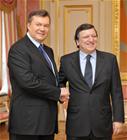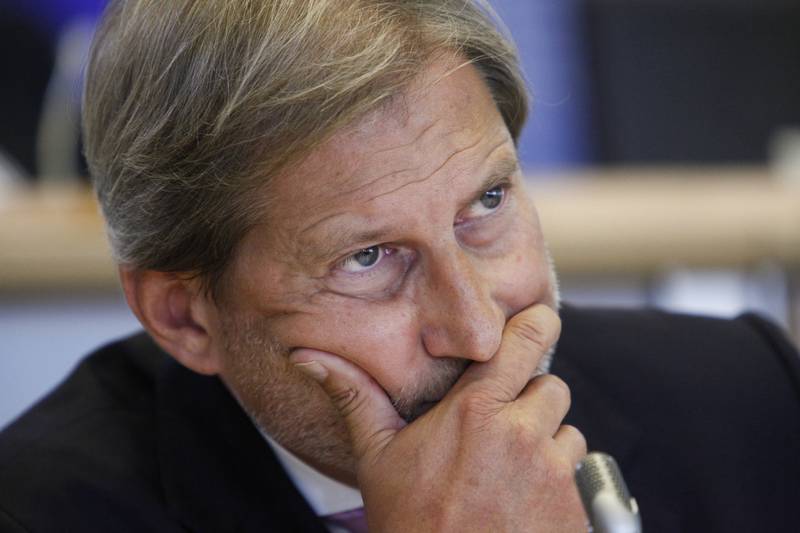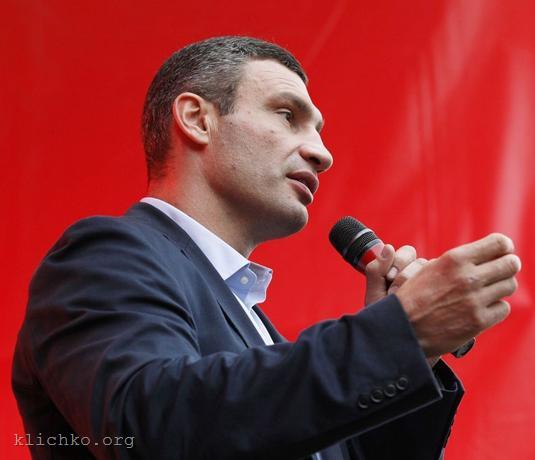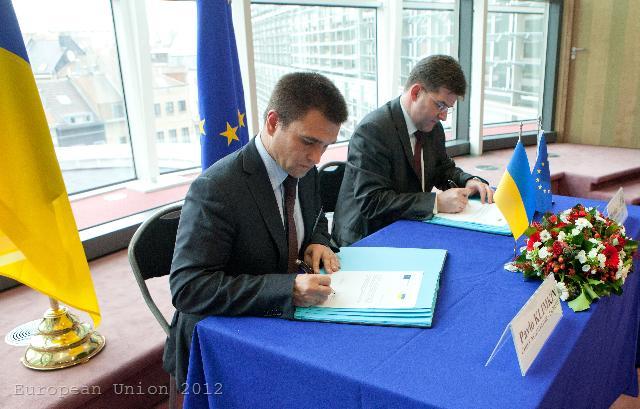Ukraine Is Under EU’s Microscope
Irena Mihaylova, November 8, 2011
 The consequences from the scandalous trial against the former prime minister and leader of Ukraine’s Orange Revolution, Julia Tymoshenko, came quickly. The European integration of the country seems to be at a standstill after the first lady of the Ukrainian opposition has been sentenced to seven years imprisonment by the Pechersky District Court in Kyiv on October 11. To Ukraine’s censure, the EU has postponed a key visit of President Viktor Yanukovych regarding Ukraine’s Association Agreement, scheduled previously for October 18 in Brussels. The long awaited agreement, including a Deep and Comprehensive Free Trade Area (DCFTA) with the EU, is due by the end of the year. Although both sides had agreed on the contract’s technical parameters, the EU has set a political requirement for sealing the deal.
The consequences from the scandalous trial against the former prime minister and leader of Ukraine’s Orange Revolution, Julia Tymoshenko, came quickly. The European integration of the country seems to be at a standstill after the first lady of the Ukrainian opposition has been sentenced to seven years imprisonment by the Pechersky District Court in Kyiv on October 11. To Ukraine’s censure, the EU has postponed a key visit of President Viktor Yanukovych regarding Ukraine’s Association Agreement, scheduled previously for October 18 in Brussels. The long awaited agreement, including a Deep and Comprehensive Free Trade Area (DCFTA) with the EU, is due by the end of the year. Although both sides had agreed on the contract’s technical parameters, the EU has set a political requirement for sealing the deal.
According to Dirk De Backer, spokesperson of EU’s President Herman Van Rompuy, "Ukraine has to make improvement on important issues, such as the rule of law and the independence of the judiciary". Europe’s call and Brussels’s deeds are a broad hint for the isolation that threatens the country unless the sentence of the political prisoner is amended. In particular, the EU hopes that the Ukrainian government will adopt amendments to Ukraine’s Criminal Code that would distinguish criminal from economic crimes, and thus mitigate the unenviable position of Ms Tymoshenko.
The Poles, concerned about the integration of their Eastern neighbour, have also taken a stance on Ukraine's internal problem. At the meeting between Polish President Bronislaw Komorowski and the secretary of Ukraine’s Council for National Security and Defence, Raisa Bogatiryova, held on 27 October in Warsaw, the Polish side put an emphasis on the observance of democratic standards and the rule of law as a factor for successful integration with the EU.
Asked whether the sentence of Tymoshenko could lead Ukraine to isolation,  according to Interfax-Ukraine, President Yanukovych replied: "Ukraine is under the microscope. Are we happy about that or not? No, we are not. Does this hamper the European integration of Ukraine? Yes, it does." The Ukrainian President also said that the situation does not make him happy and if amendments to the Criminal Code were adopted before the appeal hearing of Tymoshenko’s case the court would take into account the recent changes of the law.
according to Interfax-Ukraine, President Yanukovych replied: "Ukraine is under the microscope. Are we happy about that or not? No, we are not. Does this hamper the European integration of Ukraine? Yes, it does." The Ukrainian President also said that the situation does not make him happy and if amendments to the Criminal Code were adopted before the appeal hearing of Tymoshenko’s case the court would take into account the recent changes of the law.
At the same time, according to Ukraine’s Kyivpost, a PR campaign is taking place in the Ukrainian media, aimed at the so called "dictating” from the EU. At its heart is the president’s request that the EU should make a concrete promise and a plan for a full membership so that Ukraine is not the "poor relative who asks, but is not let in", in the words of the Ukrainian leader. According to Yanukovych, in the absence of a membership prospect the Association Agreement is "empty." The president’s instigation at the Ukrainian audience, broadcast on the state-owned Channel One, may be interpreted as an "escape strategy" for managing the public in case of another delay of the signing of the Association Agreement, scheduled for December. In a Ukrainian TV show, again on state television, the public was asked ‘whether the EU has the right to dictate its rules on Ukraine?' 76 % answered negatively, writes Кyivpost.
On the opposite of anti-European media trends, Kiev’s magazine ‘Focus’ has ranked Yulia Tymoshenko ‘first’ in its edition called the "100 Most Influential Women in Ukraine" at the end of October. Thus it appears that the process that had to discredit the opposition has had the opposite effect - acting in favour of the convicted leader.
America, like the EU, does not approve the development of Tymoshenko’s case and therefore predicts complication of its relations with Ukraine in the future. NATO’s Secretary General Anders Fogh Rasmussen also expressed disappointment with the proceedings, stating that the decision of the Ukrainian court would be considered in the evaluation of the Ukraine-NATO annual cooperation programme for 2011.
 Amid growing diplomatic pressure from the West, Ukraine’s prospects for cooperation in the East are widening - namely a membership in the Russian-led Customs Union (between Russia, Kazakhstan and Belarus). There are also important negotiations for President Yanukovych in the near future on the supply of Russian gas. Still, the Ukrainian dilemma remains very much unresolved.
Amid growing diplomatic pressure from the West, Ukraine’s prospects for cooperation in the East are widening - namely a membership in the Russian-led Customs Union (between Russia, Kazakhstan and Belarus). There are also important negotiations for President Yanukovych in the near future on the supply of Russian gas. Still, the Ukrainian dilemma remains very much unresolved.
 Johannes Hahn | © European Parliament
Johannes Hahn | © European Parliament | © klichko.org
| © klichko.org | © European Union 2012
| © European Union 2012